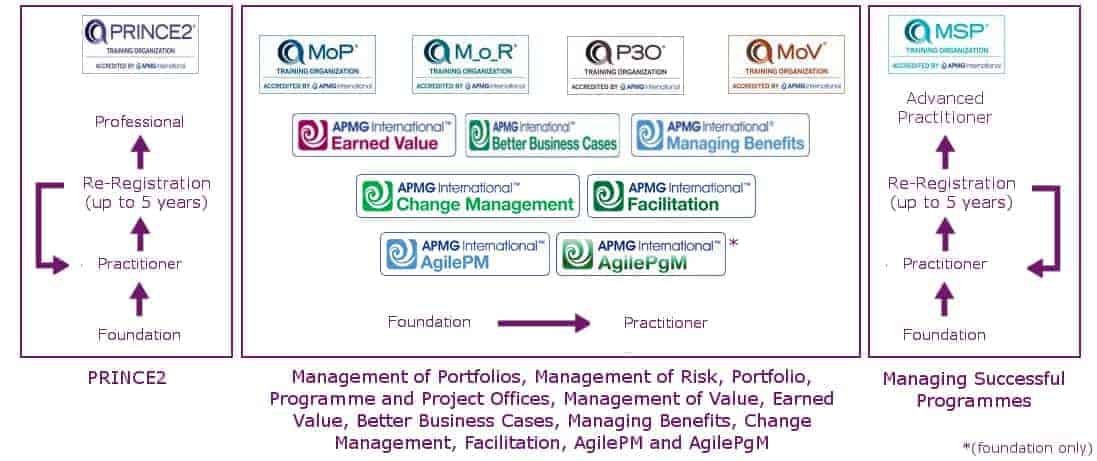Lots of Qualifications but what do the levels mean? (Part 1 of 3)
We are frequently asked questions about the differences between the levels of qualifications for different PPM topics. AT CUPE we only cover PPM and related qualifications so this is not intended to cover topics which fall into other areas. Here I will clarify the differences between the qualification levels covering different PPM topics, starting with the APMG and AXELOS qualifications.
All the exams which cover the APMG and AXELOS subject areas use standard Foundation and Practitioner levels. All APMG and AXELOS exams can be applied for through the Accredited Training Organisation – CUPE International – or directly to the Exam Institute. They are available at a company location, exam centre or online. Some qualifications only offer the Foundation, some only Practitioner and some have an additional higher level. So, what is the difference between Foundation and Practitioner?
Foundation exams test the knowledge of the candidate. This relates to the method as shown in the reference book / books, but not being applied in a situational context. Foundation exams are multiple choice format.
Practitioner exams have a pre-requisite of the Foundation of the same topic or the Foundation / Practitioner of another topic, for some exams, already being gained. The exams test the ability of the candidate to apply their knowledge to a situational context using a case study to simulate real situations. Practitioner exams are objective test format. This is a sophisticated form of multiple choice using a variety of question formats.
Re-registration examinations are required for some of the AXELOS topics. This means every 5 years you need to complete another exam at Practitioner level to demonstrate you have maintained this level of knowledge and ability to apply the knowledge. There is a separate re-registration exam available which is the same as Practitioner, but shorter duration and covering fewer areas of the syllabus. At CUPE we recommend people to do the full Practitioner again, unless they are confident that if their three weakest topics would still score a pass.
In this range of qualifications there are also higher / different levels for PRINCE2 and MSP. Let’s look at PRINCE2. This has the PRINCE2 Professional level. This qualification is an Assessment Centre rather than examination. It uses a case study and asks candidates to work together to produce the project documentation, make project decisions and assess risks or issues. The candidate is assessed on their ability to work with others as well as produce evidence of knowledge. This qualification shows you can deliver projects rather than you know how this could be done. It is a differentiator in a market where there are over a million PRINCE2 qualified people.
MSP has the Advanced Practitioner level. This is an examination based qualification but takes the Practitioner to a higher level of complexity and depth of understanding. When you re-register for MSP Advanced Practitioner you can use your own programme and write a ‘dissertation’ on it demonstrating how you have applied MSP to the programme.
If you’d like to know more about our qualifications or have any questions on which is most suitable for you, feel free to fill out a contact form or call us on +44 (0) 1202 555 733!

